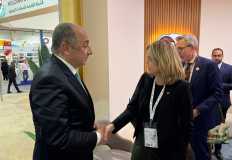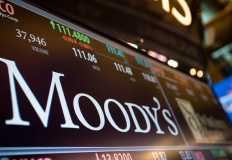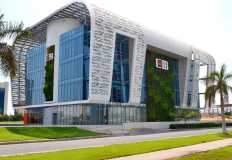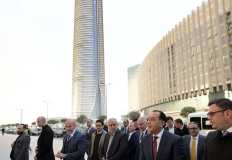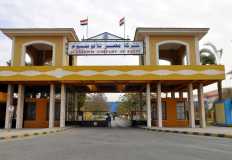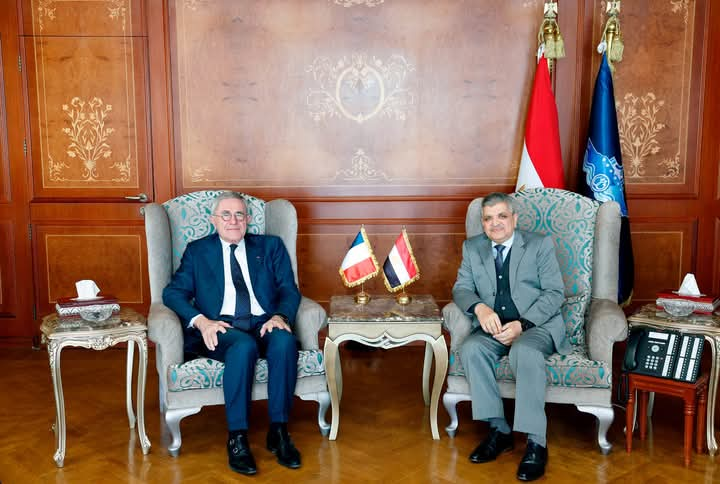
Suez Canal Authority Chairman, Lieutenant General Osama Rabie, met with Gerard Mestrallet, French President Emmanuel Macron's special envoy for the India-Middle East-Europe Economic Corridor (IMEC), to discuss potential cooperation. Ambassador Naglaa Najeeb, Deputy Assistant Minister of Foreign Affairs, also attended the meeting at the Authority's headquarters in Ismailia.
Rabie emphasized the Suez Canal's strategic importance as the shortest, fastest, and safest route connecting East and West, a cornerstone of maritime transport for over 150 years. He highlighted Egypt's ambitious development strategy for the canal and surrounding areas, aiming to maximize the benefits of its unique geographical position. He stressed the canal's success in balancing time, cost, and service needs for its clients, contributing significantly to global trade.
He affirmed the Suez Canal Authority's willingness to
cooperate with new maritime projects that promote trade and facilitate
logistics, given maritime transport's dominant role in global commerce. He
asserted that the Red Sea crisis demonstrated the canal's crucial role in
maintaining stable global supply chains, noting that alternative routes like
the Cape of Good Hope resulted in increased costs, higher emissions, and longer
transit times.
Rabie detailed the Authority's efforts to mitigate the
crisis's impact on its clients, including new services, flexible pricing and
marketing policies (such as maintaining transit fees), and continuous
communication with shipping lines and companies. He reiterated that the Red Sea
crisis did not create a viable alternative to the Suez Canal, and that
stability was returning to the region. Mestrallet confirmed that the IMEC was
not intended to compete with the Suez Canal. The visit was part of ongoing
cooperation between the Suez Canal Authority and the Ministry of Foreign
Affairs, and allowed Mestrallet to see the canal and its development projects
firsthand.
Lieutenant General Rabie highlighted several positive signs
indicating a return to stability in the region, noting that many ships are
resuming their transit through the Suez Canal.
Gerard Mestrallet, French President Emmanuel Macron's
special envoy to the India-Middle East-Europe Economic Corridor (IMEC),
expressed his interest in exploring cooperation opportunities with the Suez Canal
Authority. He emphasized that IMEC will not compete with the Suez Canal due to
significant differences in trade volume capacity. IMEC utilizes both maritime
and rail transport, while the canal primarily serves maritime shipping.
The envoy explained that his visit aimed to understand the
Suez Canal's strategy and its maritime and logistical services. He noted that
IMEC's routes are still under development, with several options under
consideration, some of which could involve cooperation with Egypt via the Suez
Canal.
Mestrallet commended the Suez Canal Authority's efforts to enhance
infrastructure projects and upgrade navigational services. He also praised the
Authority's adaptable response to the Red Sea crisis and expressed hope for a
swift return to regional stability.
Ambassador Naglaa Nageeb, Deputy Assistant Minister of Foreign
Affairs, emphasized the meeting's significance in showcasing Egypt's
infrastructure development over the past decade. She highlighted Egypt's role
as a crucial hub not only connecting Asia and Europe, but also extending links
to the Far East, Western Europe, Africa, and other regions. This development
positions Egypt to explore future cooperation opportunities within the
India-Middle East-Europe Economic Corridor (IMEC).
The visit included a tour of the Suez Canal Yacht Marina, a sea tour of the new Suez Canal, and a visit to the Suez Canal Museum, where the delegation learned about the canal's history from its initial excavation to the present day.
